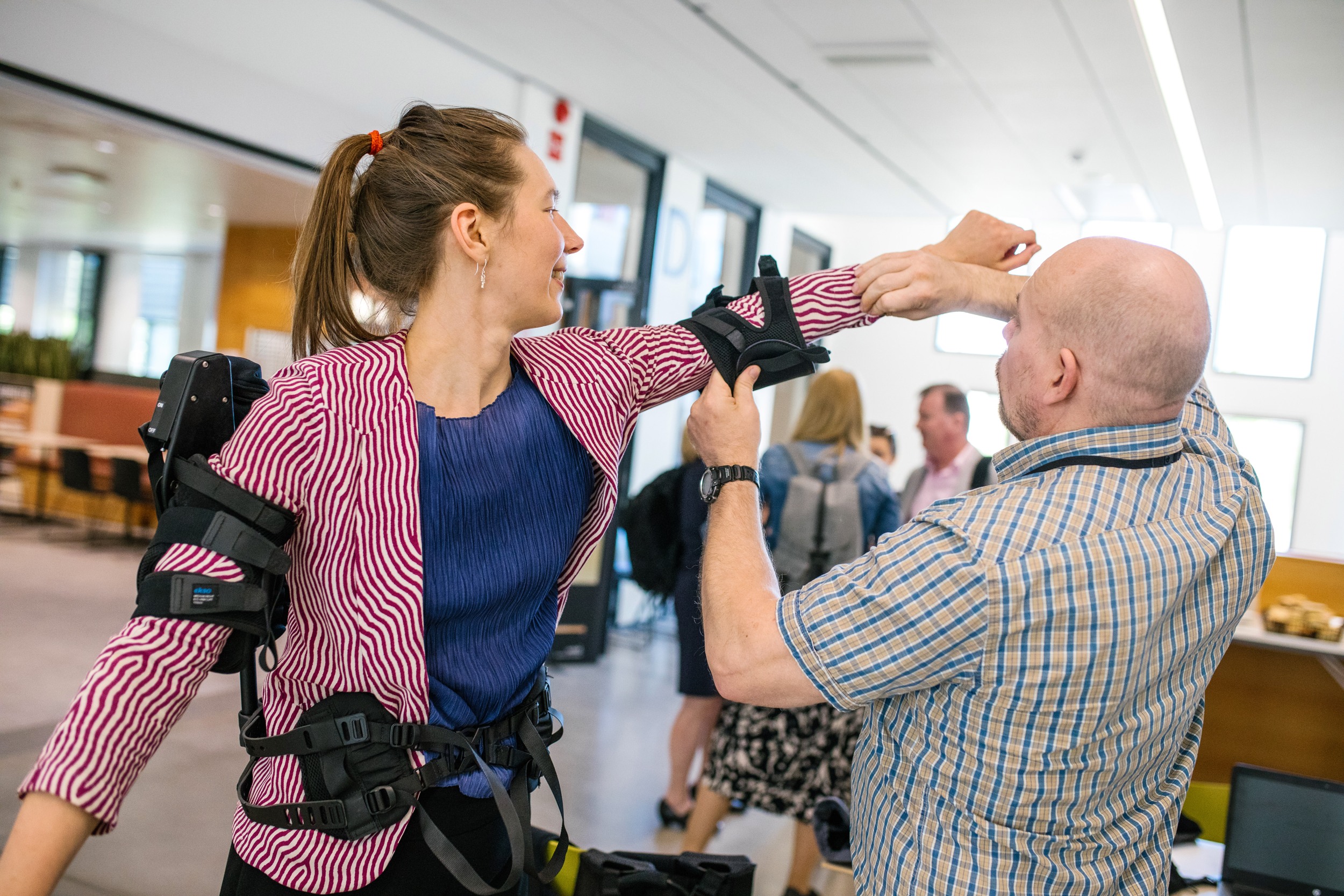HAMK launches Master’s degree in Wearable Intelligence – the only one in the world

HAMK will launch a unique degree programme in many ways next autumn: a master’s degree training experts in wearable intelligence that cannot be found elsewhere. In addition, the planning and implementation of the education will be done in collaboration with two Nordic universities.
Supportive pants, a glove that provides grip strength, an external support structure that lightens the movement of a forest clearer, in other words an exoskeleton… These “gadgets” are not science fiction, but existing technology, usable intelligence. It will be possible to study it at the Master’s degree level starting next autumn at HAMK.
The Wearable Intelligence Master’s program is also an exceptional result of Nordic cooperation. In addition to HAMK, the Swedish Borås University and the Danish University of Southern Denmark, SDU, are responsible for the curriculum and implementation.
Partners bring their own expertise to the whole. Borås has a long tradition in the textile industry, which has evolved into the current smart textile industry – they have top modern facilities and equipment for designing and implementing smart textiles. SDU professor Xiaofeng Xiong – who will also be training students as a partner of HAMK’s Kimmo Vänni – is a top expert in the design of exoskeletons and the utilization of data from their sensors with the help of artificial intelligence. In addition, through the Danish university, we will have access to a network of over 200 robotics companies.
Through the Danish partner, we will have access to a network of over 200 robotics companies.
At HAMK, expertise in biosensors is being developed, which when combined with textiles could measure information such as human sweat. In addition, a unique feature of HAMK is the only footwear design education in the Nordic countries, so bringing intelligence to shoes would be an interesting, potential application.
Kimmo Vänni, who has brought a lot of expertise in wearable intelligence, and Katja Rönkkönen, responsible for the development of YAMK education, are visibly excited about the new degree programme.
“There is no complete Master’s degree in this field anywhere. However, there are individual courses on wearable intelligence available, such as at our partner universities. There is also design of solutions focusing on the biomedical field, but there is no education where the development extends broadly to different sectors,” Kimmo Vänni points out.
Solutions for wearable intelligence at HAMK have already been successfully produced, for example for e-sports. In addition, we recently received funding for a project where an exoskeleton, suitable for forestry tasks mentioned above, is being developed. Similar technology is also being developed for agriculture and horticulture.
Students come to Hämeenlinna
Students are primarily sought from abroad, focusing on countries outside the EU and EEA, which means that students pay tuition fees. Students must be sought from around the world also because there are few potential experts in a new and specific field.
In the application for the education, the applicant must come up with a wearable intelligence product or device that they can then implement during their studies.
“This is not just online education. Students are expected to come to Finland to participate in face-to-face teaching at the Hämeenlinna University Center, including purpose-built laboratory facilities,” says Katja Rönkkönen.
Later, students will have the opportunity to participate in a 2-3 month exchange program at the University of Borås.
“We are looking for students who are motivated to develop new products and innovations in this field,” Vänni says.
In the future, intelligence will hide in clothing more subtly, as there is a demand for so-called soft robotics: easily wearable and removable smart clothes. The industry is also on the rise globally and its market potential is enormous.
“For example, Huawei, which doubled its operating profit last year, is currently looking for biosensor developers. They are just increasing investments in what this study is intended to teach,” Vänni enthuses.
Wearable Intelligence Master Degree Programme
- The application for the training starts on December 16th. Students are sought from all around the world.
- There are 20 available spots for the degree programme. However, it can start with a minimum of ten students.
- The admission requirement is a bachelor’s degree in engineering or natural sciences, possibly also degrees in the fields of physics or chemistry are accepted.
- The applicant must also have two years of relevant work experience.
- The topics to be studied include smart textiles, wearable technology, robotics, the operation of sensors and artificial intelligence, as well as data processing and analysis.
- Support for planning the content and implementation of education has been received from the NordPlus program.
- Smart clothing brings efficiency and safety to many industries and provides real-time, personalized information to the user even during leisure time.
- The exoskeleton robotics market is growing steadily, and is expected to reach $16.0 billion by 2032.
- The healthcare, industrial, and leisure sectors are expected to be the most significant target markets.